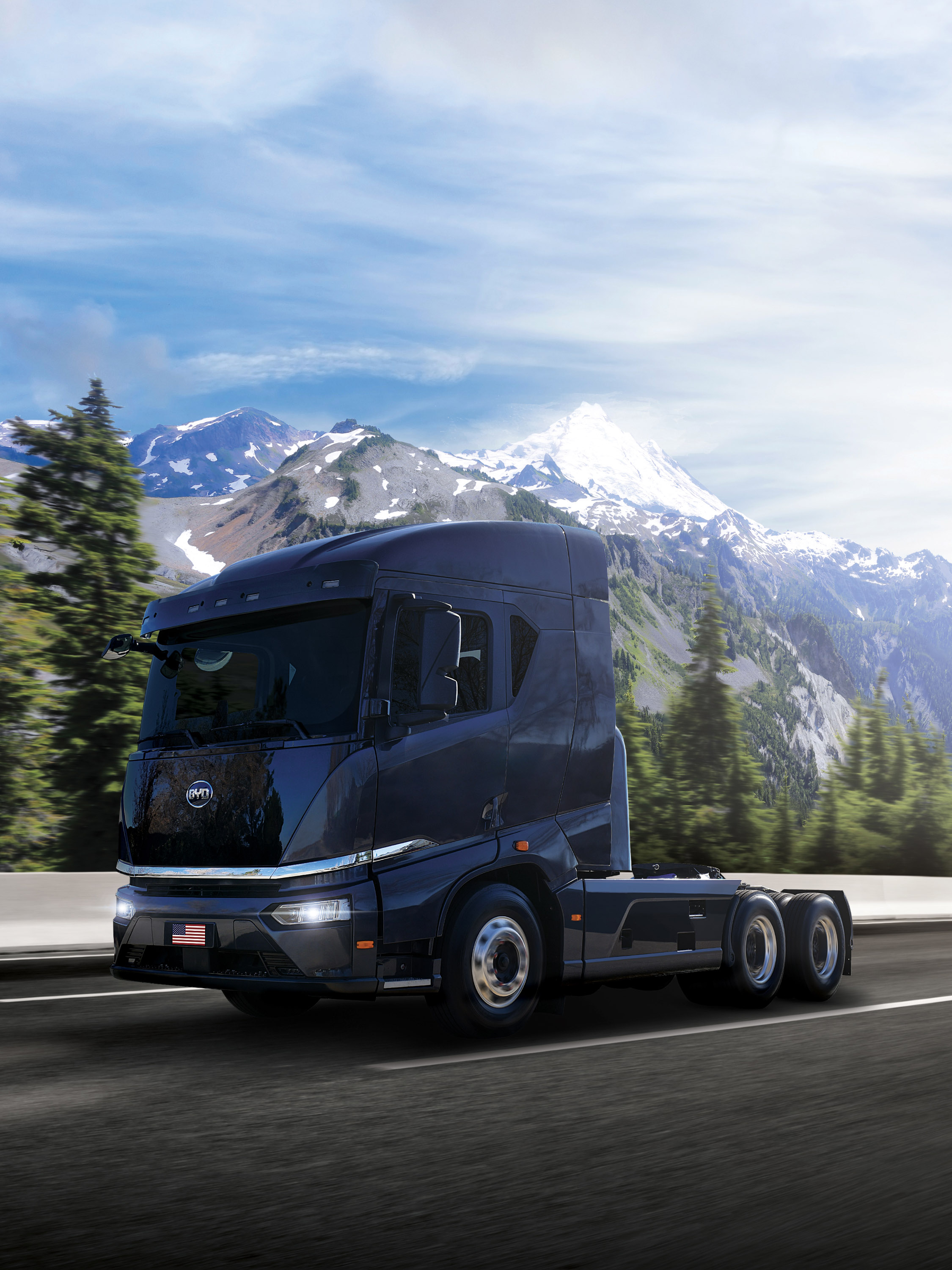2023 Climate Tech Companies to Watch: BYD and its affordable EVs
The electric vehicle maker could help decarbonize transportation with an innovative battery that’s safe and efficient.

Explore the 2023 list of 15 Climate Tech Companies to Watch.
By designing a better battery, BYD has pulled ahead in the global electric vehicle race. Its affordable and versatile cars are making EVs far more accessible, and could ultimately help countries including China to dramatically reduce emissions from transportation.
Intro
BYD has come a long way from its early days manufacturing mobile phone batteries and cheap gas cars. Now the top EV producer in the world, BYD produces electric vehicles at affordable prices, making them a practical option for the huge and varied market of Chinese car buyers. BYD also makes electric buses that run in over 70 countries and has dominated the world’s plug-in hybrid market.
The company’s success stems from its technological lead in lithium iron phosphate (LFP) batteries. Traditionally, LFP batteries didn’t store as much energy as nickel manganese cobalt (NMC) batteries, which were used in 95% of the electric cars produced a few years ago. BYD’s versions—particularly its signature product, the Blade Battery—solve this problem via a new structure that uses fewer parts and packs more cells into the same space. LFP batteries are also safer and cheaper than NMC batteries.
Over time, BYD has reshaped the EV supply chain. From mining critical minerals to designing the chips used in cars, BYD does everything in house and sometimes also sells its products to competitors. Even Tesla is now buying batteries from the Shenzhen-based company.
Key indicators
- Industry: Electric vehicles
- Founded: 1995
- Headquarters: Shenzhen, China
- Notable fact: In August, BYD produced its 5 millionth electric vehicle.
Potential for impact
For the world to transition beyond fossil fuels, it will need a lot of electric vehicles. BYD not only makes electric buses and monorails, but also sells passenger cars at a wide range of prices. The cheapest BYD EV model costs just above $10,000, less than one-third the cost of the cheapest Tesla. And BYD sells plug-in hybrid models for about the same price as similar gas cars.
This variety and affordability is helping BYD spread into many more countries; it’s now selling cars across Europe, Southeast Asia, Latin America, and elsewhere.
Caveats
BYD risks falling behind in a fiercely competitive industry. Tesla is still the most well-known EV brand around the world. And just within China, there are over a dozen other companies that offer affordable, versatile EVs.
When it comes to batteries, BYD is in a head-to-head race with another Chinese company, CATL, which makes every type of battery BYD offers and works with traditional auto heavyweights such as Ford, Toyota, and BMW.
What’s more, BYD is already behind its peers in one important area. Many EV companies are rushing to offer the most advanced autonomous driving functions for customers, and AI isn’t BYD’s strength (though the company recently recruited thousands of software engineers to try to catch up).
Internally, BYD has had difficulty managing production for the past several years. It struggled to deliver on orders in 2021 and reportedly faced an inventory overstock in 2023.
When
One of the next frontiers of battery tech is sodium-ion batteries, which can cost less, work in more extreme weather, and recharge more quickly. BYD will reportedly start selling cars equipped with them by the end of 2023, and the company has announced a new factory to scale up the production of sodium-ion batteries.
BYD is also expanding its production capacity overseas, starting with a car factory in Thailand and another in Brazil that are expected to be built by 2024. One or more factories in Europe are also under discussion and could be announced before the end of this year.
Next steps
Having sold its consumer EV models in the European market since 2019, BYD has set ambitious goals for 2030: to sell 800,000 cars in Europe annually, reach 10% of the market share, and become one of the top three EV brands in the region.
But to succeed in Western markets, BYD needs to overcome the unfavorable reputation of made-in-China products. The company needs to score higher in safety tests, offer better exterior and interior designs, and show that its cars are reliable. BYD also faces geopolitical challenges—including intensifying tensions around battery materials and technologies, and the lack of EV charging infrastructure across the world.
Explore the 2023 list of 15 Climate Tech Companies to Watch.
Deep Dive
Climate change and energy
This classic game is taking on climate change
What the New Energies edition of Catan says about climate technology today.
How battery-swap networks are preventing emergency blackouts
When an earthquake rocked Taiwan, hundreds of Gogoro’s battery-swap stations automatically stopped drawing electricity to stabilize the grid.
The world’s on the verge of a carbon storage boom
Hundreds of looming projects will force communities to weigh the climate claims and environmental risks of capturing, moving, and storing carbon dioxide.
The cost of building the perfect wave
The growing business of surf pools wants to bring the ocean experience inland. But with many planned for areas facing water scarcity, who bears the cost?
Stay connected
Get the latest updates from
MIT Technology Review
Discover special offers, top stories, upcoming events, and more.